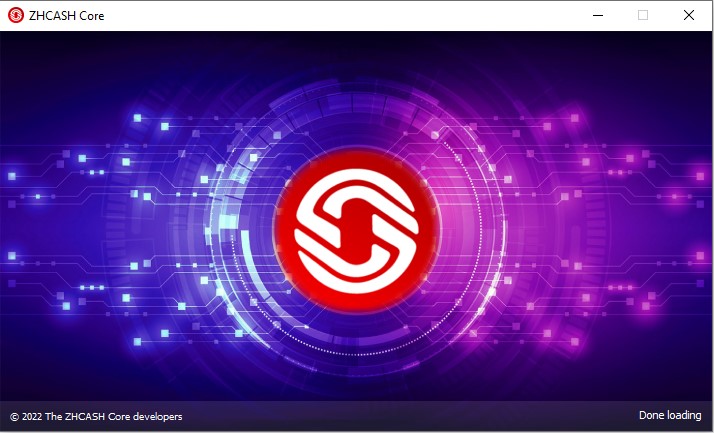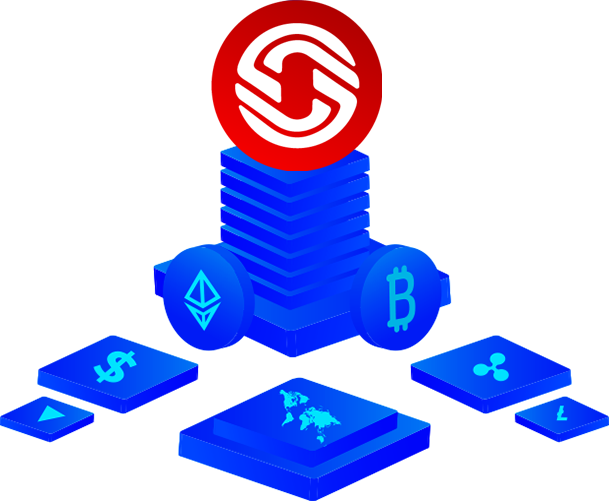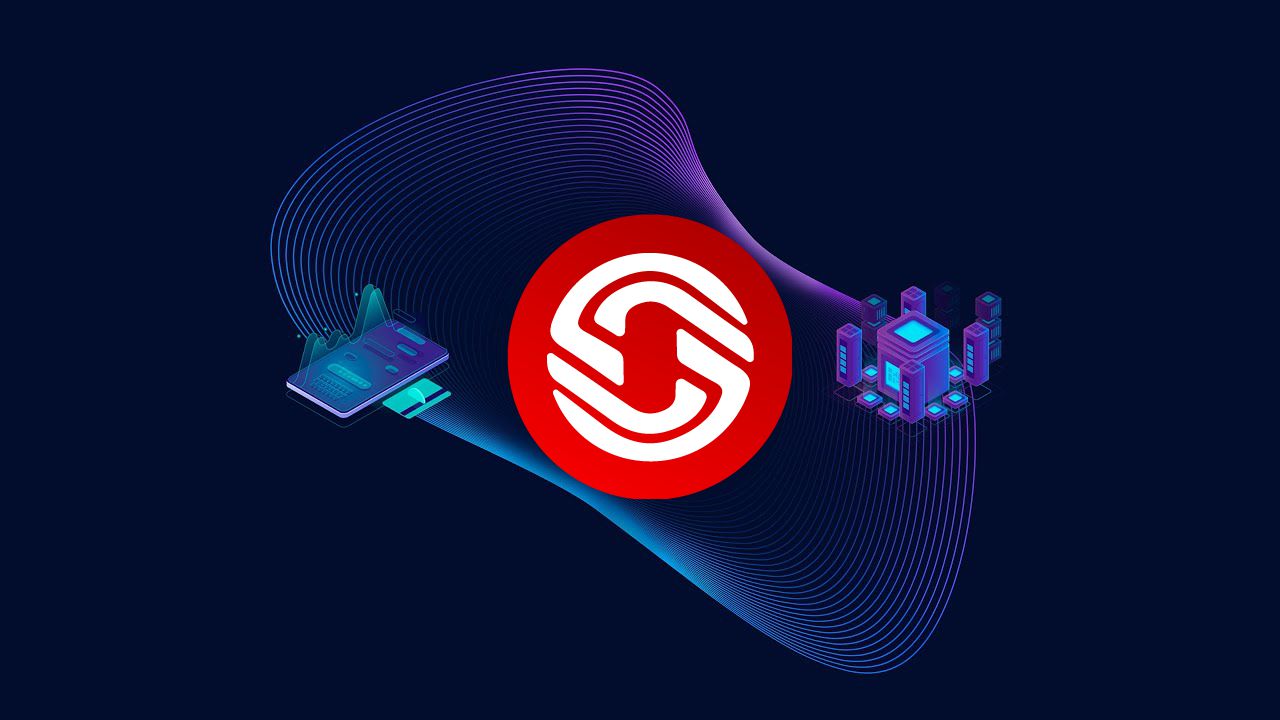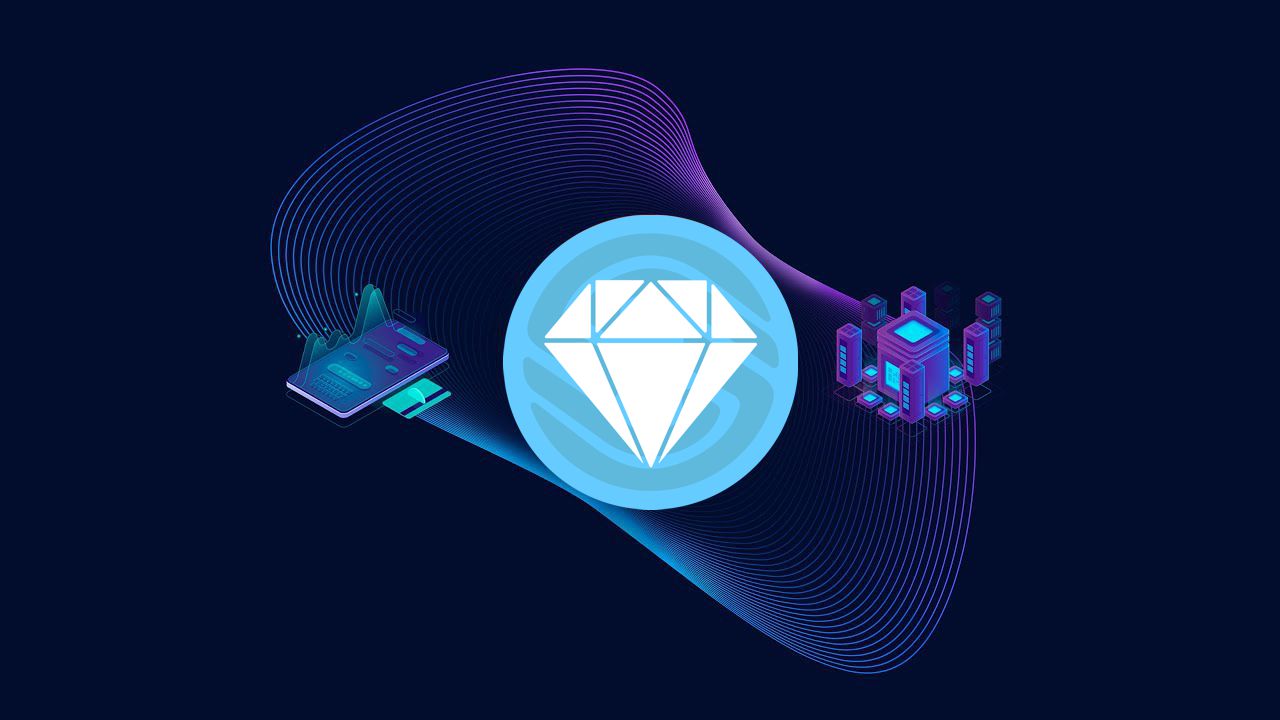DAO concept ... Solidity platform PoS consensus Open source Master Contracts Smart Contracts ZRC (ERC20 & ERC721) DEFI & NFT UTXO & DApps Decentralized DB Smart Contract Builder Crowdfunding Crowdinvesting Launchpad DPoS & IPoS DEX & P2P Open API TESTNET
WALLETS
PC or laptop QT version: Windows MacOSX Linux Testnet
ZHC Lite wallet version 0.5b: Windows MacOSX Android
Console (server) version: Windows MacOSX Linux
Web3 wallet for Any browsers: PHOTON ZHC wallet | Chrome Web Store
Web (browser) version with tokens: Web wallet
Telegram wallet with tokens & NFT: Telegram
Launchpads, DAX P2P platform, token and NFT market, ZRC20 and ZRC721 smart contract designer: WEB CONSOLE
White paper | Delegators | Validators
80+
Supernodes
370000+
Addresses
1000+
PoS nodes
10000+
Tokens & Smart contracts
Business digitalization platform with open source.
ZHCash is built upon the innovations of Bitcoin and Ethereum with some significant differences.We offer an open-source blockchain platform for creating decentralized applications powered by smart and intelligent contracts. ZHCash is a fork of Bitcoin, enhanced with the Ethereum Virtual Machine (EVM), combining the best of both worlds. We utilize the UTXO (Unspent Transaction Output) model, known for its high security and efficiency, along with the Ethereum Virtual Machine (EVM), renowned for its smart contracts. This means that ZHCash is more than just a cryptocurrency. It empowers businesses to use the public ledger for tracking products and services. The ability for organizations to automatically confirm customer purchases and provide ongoing support is a key feature of our platform. Interest in blockchain technology is on the rise, especially in the financial sector. Currently, many banks are securing blockchain patents, indicating their intention to integrate this technology into their products and services. One of ZHCash's primary objectives is to change how applications store data. Instead of centralized data storage on a single server, applications running on the ZHCash platform store data as transactions on the blockchain. This enables the automation of transaction processes. For instance, a car or house can be sold automatically as soon as the second party fulfills the predefined conditions. This eliminates the need for real estate agents, brokers, and even lawyers. A significant achievement of ZHCash is the ability to ensure the execution of transaction terms without intermediaries. We launched our test network in 2018 and have been continuously evolving and improving ever since.
The network started: 4.12.2019
Genesis Block
ZHCash is an open blockchain platform with open source aimed for business digitalization and creating decentralized applications. It supports the Solidity programming language (ZRC - unified standards ERC20, ERC721, etc.). Unlike most other platforms, ZHCash allows businesses to deploy their own blockchain and digital assets in just a few clicks. Even a novice developer can do this using a set of intuitive tools. The main advantages of the platform are as follows: minimal requirements for the customer’s initial data, simplicity in creation of all types of tokens and coins, as well as of a blockchain infrastructure, and financial affordability. Coins can be used to implement random digital signs such as shares, bonds, cryptocurrencies and tokens, intellectual property, etc., as well as real objects.
Work in real time.
Fast online transactions.
Fast and reliable operation of the cloud blockchain platform.
Low fees for any transactions.
Low commission for creating a smart contract.
3rd generation PoS mining. Wallets are full-fledged nodes of the network and participate in the processing of transactions for which they receive rewards. All network fees are received by PoS miners. The organization of a PoS node requires the constant presence of a wallet in the network and as many coins as possible on the wallet.
IPoS (delegation of coins to supernode pools).
DPoS (algorithm for rewarding the main validators of the network).

ZRC - master contracts
The ZHCash platform supports smart contracts written for the Ethereum virtual machine and for the x86 virtual machine, while providing backward compatibility with Ethereum contracts.
Special features: UTXO, POS, DPOS. DGP control protocol. EVM + x86 virtual machine. Programming languages: Solidity, C / C ++, Rust, Python. Full support and compatibility with ERC20, ERC721, GO, C, C ++, C # & Java.
DApps and DGP governance protocol
Thousands of the largest companies in the world are ready to invest billions of dollars in blockchain development. This places decentralized applications (Dapps) among of the most promising IT-spheres in the nearest future. Decentralized applications are increasingly attracting the attention of developers around the world. Unlike centralized apps, Dapps directly connect users and developers without involving a mediator. Developing of decentralized applications of different kinds (DApps) with high level of protection, created on the blockchain basis and working with smart contracts, allows implementing more functions, including financial ones, for managing fiat and digital assets.
Unlike Ethereum, these are new types of contracts, very similar to SO (standing order of the bank). They are performed automatically when a certain algorithm is applied. For example: the client provides the bank with a monthly payment, and the smart contract performs the same function, but the payment is automatically distributed to spheres necessary to close all the financial issues of the bank. These are more complex mechanisms, but at the same time the most promising ones. Decentralized Governance Protocol (DGP) makes it possible to change certain blockchain settings using smart contracts. The Account Abstraction Layer (AAL) decouples applications from the underlying protocol, keeping the blockchain running while giving the opportunity to add more capabilities to smart contracts in the future. The x86 virtual machine will support C, C ++, Rust, Python, and other programming languages, helping to adapt smart contracts. The UTXO model provides a simple payment verification (SPV) that allows customers to verify transactions without deploying a full node.
DGP governance protocol. The size of each block is set by the DGP protocol and smart contracts. The Decentralized Governance Protocol (DGP) is designed to let users change individual blockchain parameters using appropriate smart contracts. Moreover, this technology allows changing the parameters of the blockchain without any disruption to the ecosystem. New settings immediately enter into force without requiring additional software downloads or intervention from shareholders and node operators. The DGP operation principle is pretty straightforward. First, one of the parties with access to the blockchain uses the DGP to propose a change to a certain parameter. Then, all other parties vote, and if the majority approves the proposal, the system will change this parameter. After that the changed data will be converted to a standard format and placed in a separate storage, from where it can be directly accessed by the blockchain software.
Technical Information and Features
Basic Quantum core. Hybrid algorithms ZTXO (UTXO), POS, DPOS, DPG. Block formation time – 120 seconds; Block size – 2MB; Total number of coins – 10 billion ZHC; Block reward 800 ZHC - ~ 1%; Consensus - Proof Of Stake. DGP governance protocol. Full compatibility and support for EVM and x86 virtual machines. Programming languages: Solidity, C/C++, Rust, Python. Full support and compatibility with ERC20, ERC721, GO, C, C++, C# & Java.
Consensus
ZHCash uses the Proof-Of-Stake 3.0 consensus mechanism instead of Proof-of-Work (PoW), which is now implemented in both Bitcoin and Ethereum.
DGP governance protocol
Decentralized Governance Protocol (DGP) makes it possible to change certain blockchain settings using smart contracts.
Work speed
The average block generation time, depending on the network activity and the number of active nodes in the network, equals 2 minutes.
Token creation
Creation of tokens is possible according to all generally accepted standards and in all smart contract programming languages, including Solidity. Tokens can be used to implement random digital characters such as shares, bonds, cryptocurrencies and tokens, intellectual property, etc., as well as real objects.
Smart contracts
Made for Business: using of smart contracts for business made simple, aiming to replace outdated enterprise solutions, increase process automation and reduce costs.
UTXO
UTXO, providing Simple Payment Verification (SPV), allows light clients verify transactions without deploying a full node. Now a smart contract can be launched directly on the phone with a few taps - this is how this revolutionary technology comes to mobile devices.
AAL - Account Abstraction Layer
AAL is a quite complex structure and allows adding new virtual machines like the x86 virtual machine. It helps simplifying smart contract management and smart contract code reuse of Ethereum smart contracts.
PoS
3rd generation PoS. 2 billion coins will be mined by PoS nodes. Block reward 800 ZHC. Post-forging (transaction fee reward). Stake calculator.
DAPPS
The platform enables enterprises develop decentralized applications and databases driven by smart master contracts.
DPoS
Rewarding super validators (owners of supernodes).
Supernodes
Supernodes act as pivots and main validators of the network. They work on the basis of the DPoS algorithm. Each supernode has a decentralized delegate pool.
IPoS
Delegation of Energy tokens to delegate pools of supernodes for staking. An algorithm used by delegators to lease out ZHCash to supernodes for a fee.
Smart contract constructor
Visual constructor of smart contracts. Creation of a token in 2 clicks from the management console (main cabinet zhcash.org)
API
Open API for developers.
Security
Protecting the wallet with a password, private key, pass phrase.
ZHCash wallets
Software for operating on the platform
Main console web wallet
- Smart contracts constructor and creation of tokens in just 2 clicks.
- Possibility of adding already existing in the network tokens.
- Supernode management.
- P2P pending order exchange.
Browser online web wallet
- All features of a graphical QT wallet possible.
- The system already has verified and audited smart contracts upon which crypto-assets are being created.
- Programming knowledge and skills are not necessary.
- Web wallet is compatible with other e-wallets.
QT Graphic Wallet
- Simple and responsive management.
- High speed and ease of work.
- Fast transactions in real time.
- Token creation.
- Programming and creation of smart contracts.
- Adding, receiving and sending tokens.
Terminal Wallet
- Server version of the Wallet.
- Flexible settings.
- Console (command line).
- Suitable for exchanges, payment and banking systems, shops, etc.


DON'T MISS NEWS AND UPDATES!
media and news sources
DAO ZHCash BUSINESS MODEL
The total amount of transactional gas for developers is limited to 10 billion ZHC coins, they can be used under certain conditions, prescribed by smart contracts.
Business digitalization platform with open source.

ZHCash is built upon the innovations of Bitcoin and Ethereum with some significant differences.
ZHC distribution
Frequently asked questions.
Most common questions and answers, as well as some relevant and useful general and technical information.
- What is ZHCash Network?
-
ZHCash is an open blockchain platform with open source aimed for creating decentralized applications working on a smart contracts basis, issuing cryptographic tokens and conducting crowdfunding campaigns. ZHCash is a Bitcoin fork with the Ethereum Virtual Machine (EVM) running over it. The platform gets the best from both sides and even more. The platform uses the UTXO (Unspent Transaction) model known for its security and efficiency, and the EVM, renowned for its smart contracts. This means that ZHCash is not just an exchange e-currency traders can create invoices for products and services in.
- What are the project goals?
-
A great opportunity for manufacturers and businesses to use the public ledger. For an organization, this is an invaluable opportunity to sell a product or a service, as well as to get proof of customer’s purchase and support the customer later on (possibly even throughout his/her life). Especially important is the blockchain technology for the finance. At the moment, banks are receiving many blockchain patents. This may be due to the fact that they are planning to adopt technology into their products and services. One of the main goals of the ZHCash platform is to change the way application databases are stored. Instead of a centralized method of storing the database on a single server, applications running on the ZHCash platform will be stored in the database as transactions on the blockchain. This can be imagined as a small program configured to automatically execute predefined actions. For example, a car or a house are being sold automatically as soon as the other party of the contract receives a predetermined sum on his bank account. This can help go without the realtor or car broker services and perhaps even without a lawyer. The main achievement is that there is no need for a third party anymore. Here the technology ensures the fulfillment of the conditions under which the transaction takes place.
- Token creation (ERC20, ERC721) and DApps based on ZHCash
-
Creating a smart contract or a flexible token in the market is not as easy as it may seem. The creation of a smart contract based on the ZRC standard (ERC20 or ERC721) takes place in the software QT wallet. Examples and templates of smart contracts can be downloaded from our git hub. A token can be created inside the main console using the smart contract builder in just 3 simple steps. You only set the parameters, and the neural network does the smart contract compilation for you.
FAQ
Frequently asked questions.
- Who is the developer of the ZHCash Network?
-
The ZHCash development community consists of several well-coordinated teams. The main development of the algorithms is carried out by the BlockChain team of ZeroHour Developers. Ideology, engineering, testing and business model constitute the ZeroLab team’s work. Implementation, UA UX design, development concept and marketing rests with the Network Validators (DAO ZHCash), international consumer societies and the decentralized venture fund Zero Gravity Foundation.
- What is a supernode?
-
Node (eng. node – knot) is a software wallet, which contains the parent asset of the ZHCash network. The minimum number of coins (steak) for organizing a supernode is 20,000,000 ZHC. The supernode wallet is the backbone of the network. Only a DAO member can own a supernode.
- What is the maximum number of supernodes on the network?
-
At the moment, there are 80+ supernodes in the ZHChain Network. In total, no more than 112 supernodes will be deployed.
- What are the requirements for organizing a supernode?
-
• Get referrals from multiple DAO ZHCash members.
• Make a voluntary and unrewarded donation for the network development in exchange for a stake of 20 million ZHC, participation in DAO ZHCash and Zero Gravity Foundation decentralized venture fund.
• Purchase or deploy your own dedicated server.
• Install and run the wallet on your dedicated server.
• Get the "Validator" status.
For the supernode to function properly, a dedicated VDS or VPS server with the recommended characteristics of 2 cores and 8 gigabytes of RAM, a 200 gigabyte SSD disk and any version of the wallet (Windows, Linux, MacOS) is required. The supernode should always be online with a maximum uptime of 24/7. The server is connected to monitoring servers. Supernodes may be subject to penalties for unstable uptime. The supernode wallet must always be online.
News
blog
Decentralized venture fund
ZERO GRAVITY FOUNDATION Launches an Innovative Platform for High-Tech Startups!
ViewLet's meet summer in CryptoSouth? ☀️
Our partners Crypto Emergency invite you to visit the fifth anniversary crypto event in the South of Russia - from May 31 to June 1 in sunny Gelendzhik, the Crypto Emergency team will gather experts from the IT and crypto industries to share knowledge and experience.
View9 Best Solidity Platforms
The Solidity programming language, created for the development of blockchain smart contracts, has become the crypto industry standard. This language was used for the smart contract of Ethereum, the largest network for decentralized applications.
View
ZHCASH open source code published
The open source code of the ZHCASH blockchain platform has been published on GitHub under the MIT license. All content is licensed under The MIT License (MIT). Languages: C++ 67.3%, Makefile 11.0%, Python 9.5%, C 4.4%, Shell 4.4%, CMake 1.0%, Other 2.4%. Contribute to zerohourcash/zerohourcash development by creating an account on GitHub.
ViewZHCASH listed on LATOKEN!
The listing of ZHC on the Latoken exchange took place. Trades are open in the direction of ZHC to USDT.
ViewBOUNTY 💎 PROGRAMM
ZHCash DeFi Bounty Programm has started! BOUNTY token is a modern intelligent master contract with staking based on the P2P blockchain network ZHCash, made in accordance with the DeFi ZRC-20 standard in the programming language Solidity smart contracts. DeFi staking of BOUNTY tokens refers to to storing tokens in the program ZHChain network support. BOUNTY tokens are a grants and rewards program the purpose of which is to reward network members for useful actions.
ReadCOINGEKO LISTING
ZHC listing on CoinGecko. It is one of the first largest cryptocurrency data aggregators. Another feature of CoinGecko is the ability to form a virtual portfolio of cryptocurrencies..
View50X LISTING
ZHC has been listed on the 50x.com exchange. Transactions are open in all directions ZHC to ANY. ANY TO ANY trading is a distinctive feature and the main advantage of this exchange.
View